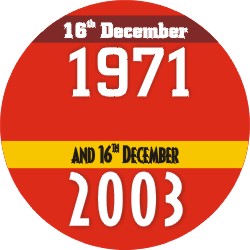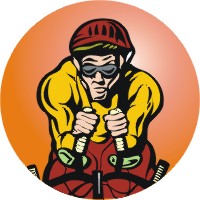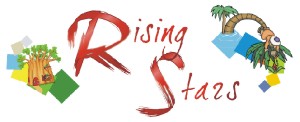The
month of December is here once again. Preparations are being taken
by all quarters in order to celebrate 16th December, our Victory Day.
But do we really understand the value of our victory, our independence?
Have we been able to honor the sacrifice of the martyrs who dreamt
of a beautiful Bangladesh, where all men would be treated as equals?
Where no one would starve to death? Where all men, regardless of caste,
creed of social status, would receive adequate protection from any
danger or discomfort?

Each year, occasions
like our Independence Day and Victory Day are celebrated with grandeur.
Long speeches are delivered, major cities are decorated, food is distributed
among poor people and integral individuals in our struggle for freedom
are remembered with all due respect. Of course, exactly which individuals
are remembered depends on who is organizing the programs, but today
is not the time for that discussion.
Just like influential
people and organizations arrange for special programs, newspapers
and magazines are also infested with articles, stories and poems about
our glorious achievement in 1971. People write about what a great
achievement our independence is, how so very many people gave their
lives that we may have a country to call our own. What most of them
do not mention is how we have wronged their sacrifice, how they would
have suffered if they saw what we have done to the country they died
for.
In East Pakistan,
we were not treated as equals to our West Pakistani counterparts.
We were always the underdogs, and all the big prizes always went to
non-Bengalis. Non- Muslims in particular had to face the brunt of
the unjust attitude of our mighty rulers. We suffered attacks on our
language, among other things, and then at one point we could stand
it no longer. When young men of our country picked up weapons and
went to war in 1971, they had the dream of country where such injustice
would not be tolerated. Has that country really been achieved? Even
today, non-Muslims do not feel safe in Bangladesh. There have even
been incidents in some remote parts of the country of people openly
making statements about non-Muslims are not welcome in Bangladesh.
To be honest,
most people do not feel safe anymore in this golden land of ours.
Murder rates have reached an all time high. Other crimes are also
more frequent than ever, except probably in the first few months following
16th December 1971. Back then, the country had just been liberated
and nothing was brought under a system yet. What excuse do we have
today, thirty two years later? The worst part of this ever increasing
crime rate is that the people in charge are not willing to admit their
failure. They will blame the opposition, some unknown foreign power
and even the current situation of the world, but not admit that they
have not done the best job they could. At times, they will not even
admit that a problem exists. We have all seen the Home Minister denying
the increase of crimes. We have also seen the Commerce Minister claim
adamantly that the price of goods is not above normal limits. Yet
the fact that crime is abundant and price hikes are getting more obvious
by the day is as clear as daylight. This lack of transparency from
the government itself encourages shady business to be conducted at
every level of the state engine. The people who died for this country
must have hoped that someday our country will be the best in the world
in some aspect or the other. We have indeed achieved that status of
being first in corruption, for the third year in a row. Some achievement
to talk about!
There was a time
when ordinary people used to be scared of the military. This was understandable
during the early years of Bangladesh. People were still not over the
brutality of the Pakistan army. But today we have our own army. Young
men enroll in this army to serve their country. They deserve our love
and respect. Instead, most people view the army with some mistrust.
Our army is one of the most feared establishments within our own country.
Instead of being proud and grateful to the young soldier who goes
through such hardship in order to prepare that he may serve is country,
we have a very demeaning view of them. Who is to blame for this negative
opinion about the Armed Forces? More importantly, are members of the
Armed Forces really bothered about their image to the common man?
Does their behavior when called to maintain law and order do anything
to pacify the citizens?
Another huge disappointment
would be the police force. The police, as many often forget, were
the first martyrs of our Liberation War. The Pakistan army started
their attack from the Rajarbag Police Line. Yet today, they are considered
the most corrupt people in a country that is considered the most corrupt
in the world. Do not these policemen remember how those policemen
were slaughtered on the night of 25th March, 1971? Does not that sacrifice
mean anything to them? Could they not keep this profession hallowed
by their memories?
Everywhere
one looks, examples of a dream gone wrong abound. I will not go to
the depressing exercise of mentioning them all. We just have to understand
that name calling and mud slinging will not take our country anywhere.
We may be able to change the roles different individuals or groups
played, but we will never be able to change the loss, the damage that
we suffered in those nine months. Instead of debating over which leader
did what for Bangladesh in 1971, we need to think of what we can do
to build the nation that they dreamt of. It is high time that we made
an effort to honor their sacrifice in the only way that matters by
being worthy of it.
Go Karting in Bangladesh
By
Ziad Bin Hyder
 Ever
wished that you could be a race car driver? Ever wished that you could
quench the need for speed in an environment especially built for doing
so? Well, Speedway Karting Ltd. is here with the answers. This firm
has introduced the concept of GoKarting in Bangladesh. For the less
informed, GoKarting is similar to Formula One racing but on a smaller
scale. If you don't know what Formula One is, I suggest that you stay
tuned to any sports channel and I am sure you will get your answers.
Go-Karting is the first step towards achieving a career in Formula
One Racing Championships. Michael Schumacher started his career with
Karting where he was the junior champion of Germany in 1984 and the
European champion in 1987 and from there onwards he started to gain
recognition as a talented racing car driver.
Ever
wished that you could be a race car driver? Ever wished that you could
quench the need for speed in an environment especially built for doing
so? Well, Speedway Karting Ltd. is here with the answers. This firm
has introduced the concept of GoKarting in Bangladesh. For the less
informed, GoKarting is similar to Formula One racing but on a smaller
scale. If you don't know what Formula One is, I suggest that you stay
tuned to any sports channel and I am sure you will get your answers.
Go-Karting is the first step towards achieving a career in Formula
One Racing Championships. Michael Schumacher started his career with
Karting where he was the junior champion of Germany in 1984 and the
European champion in 1987 and from there onwards he started to gain
recognition as a talented racing car driver.
It wasn't long
ago when the want for a career in Formula One was just a dream; a
practical impossibility, but Speedway Karting Limited has turned this
dream into reality and has proven that nothing is impossible. The
man behind the idea of Karting in Bangladesh is Mahmud Hasan Khan,
an MBA from United Kingdom. He witnessed many such races while studying
there and hence got the idea of starting Karting in Bangladesh. The
racetrack is situated in Ashulia, a few kilometres before Fantasy
Kingdom. The reason for choosing a place on the outskirts of Dhaka
City is because the location is the only available place closest to
Dhaka City that is big enough to accommodate the race track, as pointed
out by Ishtiaq Ahmed Chowdhury one of the directors of Speedway Karting
Ltd. It was scheduled to open after Eid-ul-Fitr, somewhere in December
but was formally opened in October. The reason behind it due to the
fact that some areas of the tracks where needed to be properly tested
and made sure that the track is safe and can be driven with optimum
speed by the customers. Because of this premature opening, the firm
was not able to put much emphasis on advertising, for which they have
received a lot of criticism. A big investment such as this deserves
large-scale advertising, and hopefully we will get to see that very
soon. Recently, Pepsi have signed a contract with Speedway Karting
Ltd and are now the official sponsors of the first Karting venture
in Bangladesh.
In
the beginning, the entry fee was Tk. 50 and they offered only one
package: a four-lap race costing about Tk. 400. During Ramadan, however,
they changed the format and now entry fee is Tk. 20 and three packages
are available. The first package is a two-lap race, which costs Tk.
150; the second package is a four-lap race, which costs Tk. 280 and
the third package is a six-lap race, which costs Tk. 400. Morever,
if you pay Tk. 6500 then you get a 100 lap-race with 15 extra laps
free and with Tk. 12000 you get a 200 lap-race with 30 extra laps
free. The cool thing about this is that it is not necessary that you
will have to finish all your 100 laps or 200 laps in one day; you
can do it in fragments on other days. Many people have complained
about the prices, claiming that they are too high and should be reduced.
The complaints come in greater numbers especially by people who have
been to India and have raced in Karting circuits over there. The reason
behind this, as cited out by Ishtiaq Ahmed, is because that all the
go-karts along with their parts have been imported from the United
Kingdom and they had to pay 90% tax when they got these vehicles into
the country. The high tax was a result of the vehicles being treated
as luxury items and not toys. Before starting the venture, a survey
had been conducted to find out from where the go-karts should be bought
and it was found.
What
to expect
By
Ehsanur Raza Ronny
 Go
karting is what the professional Formula 1 drivers like Shcumacher
and Hakkinnen use for training. In fact karts are used for teaching
them in the first place. They are tiny and the centre of gravity is
so close to the ground that there is very little risk of turning over
during a fast turn.
Go
karting is what the professional Formula 1 drivers like Shcumacher
and Hakkinnen use for training. In fact karts are used for teaching
them in the first place. They are tiny and the centre of gravity is
so close to the ground that there is very little risk of turning over
during a fast turn.
If this is your first experience, what are the things
that you can expect? First of all, you will be sitting very close
to the ground. It is a little unnerving to have your bottom whiz by
so fast, so close to the ground. Be very careful not to move your
elbow backwards too far, as you will be touching the hot engine. For
this purpose they will provide you with elbow guards.
You do not require any past driving experience. The
karts are very simple in the sense that these have no gearing. You
just press the accelerator and move on. It is convenient because you
need to concentrate on not hitting the multi-coloured barriers made
of old tires.
The bad thing here is that you do not have seat belts
so on your first move do not push the kart too fast. Take one lap
to get acquainted. You will find that the steering is very different
form your slack Toyota power-assisted steering. Here you actually
feel every single input as you literally hang on for dear life.
The best way to take turns is to take them slow and
gradually build up speed. The thing to watch out for is your braking
and accelerating combination. If you take a turn too fast and suddenly
let go of the accelerator, you will spin around. If you brake too
hard you will spin. If you touch the wheel of another kart you will
spin. The trick is to apply power the moment you feel that the rear
wheels slide out. At the same time, you have to turn the wheels in
the opposite direction of the slide. This is a lot of technical mumbo
jumbo, which you will figure out once on the track. A lot of the action
is your gut feeling.
Anyone can drive fast, but finesse is for a select
few. Pump the pedals gently and you will sail through each corner.
As your skill improves while conversely decreasing your bank balance
you can increase the power in turns and feel the kart power sliding.
Trust me, nothing can give you a better adrenaline rush.
